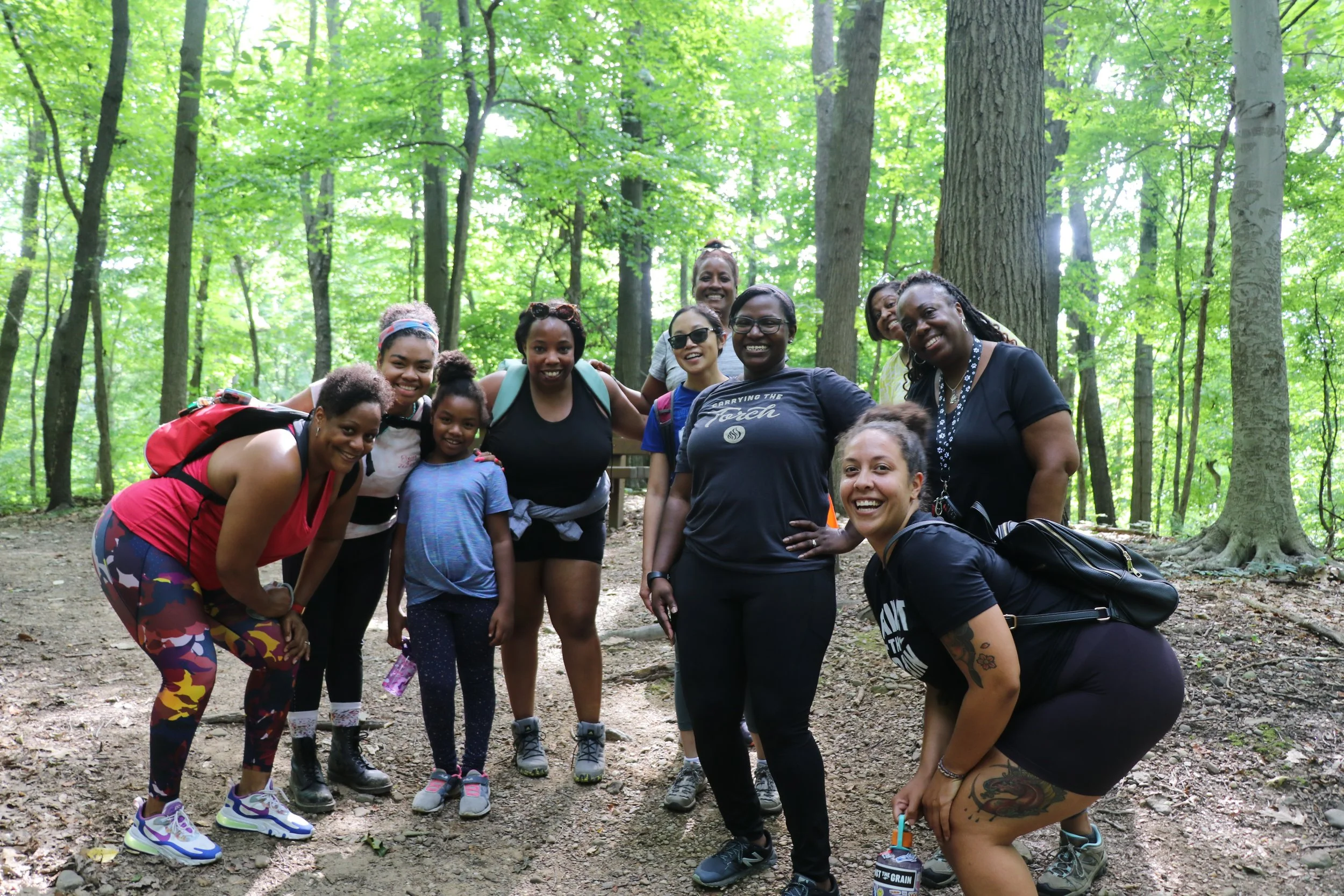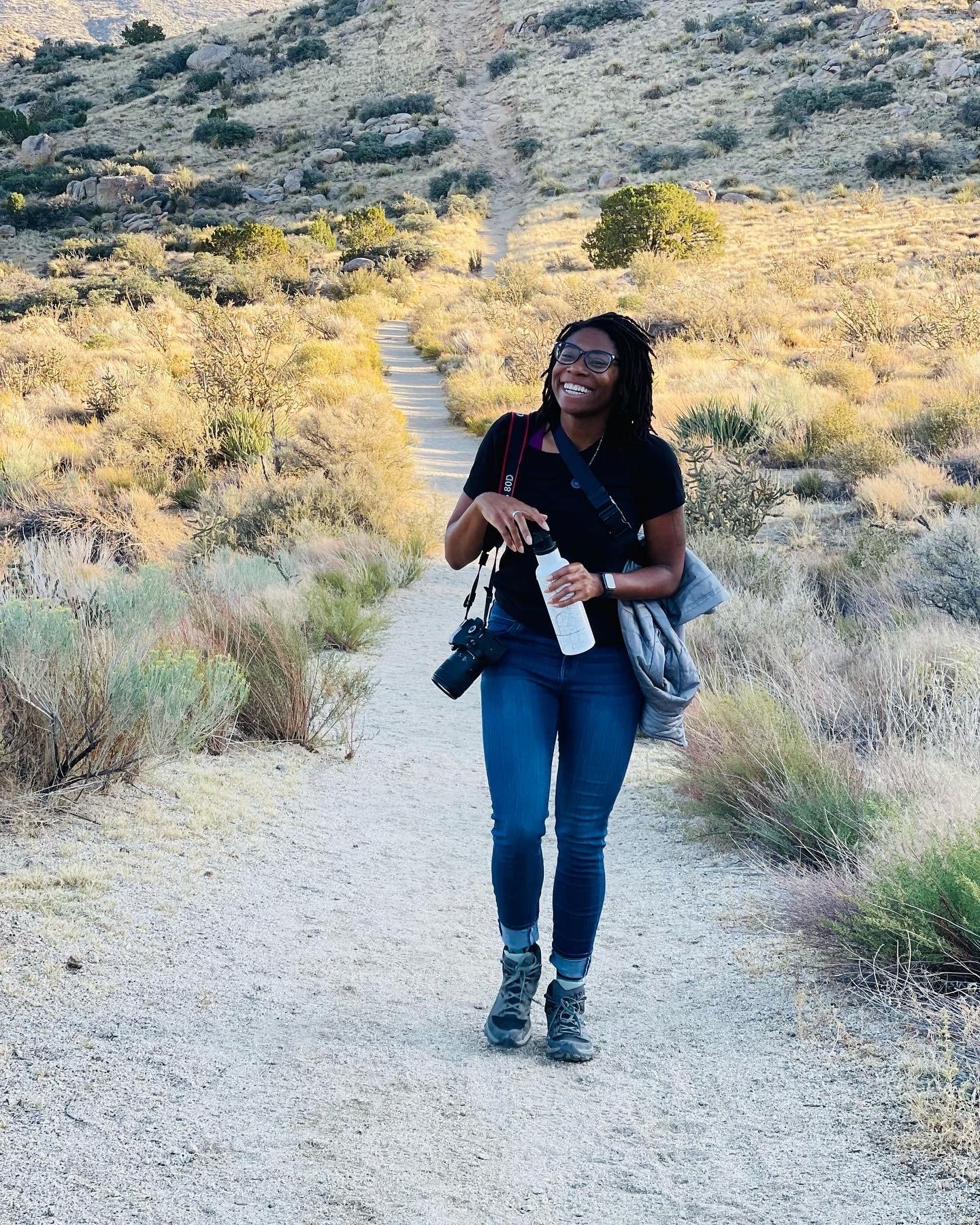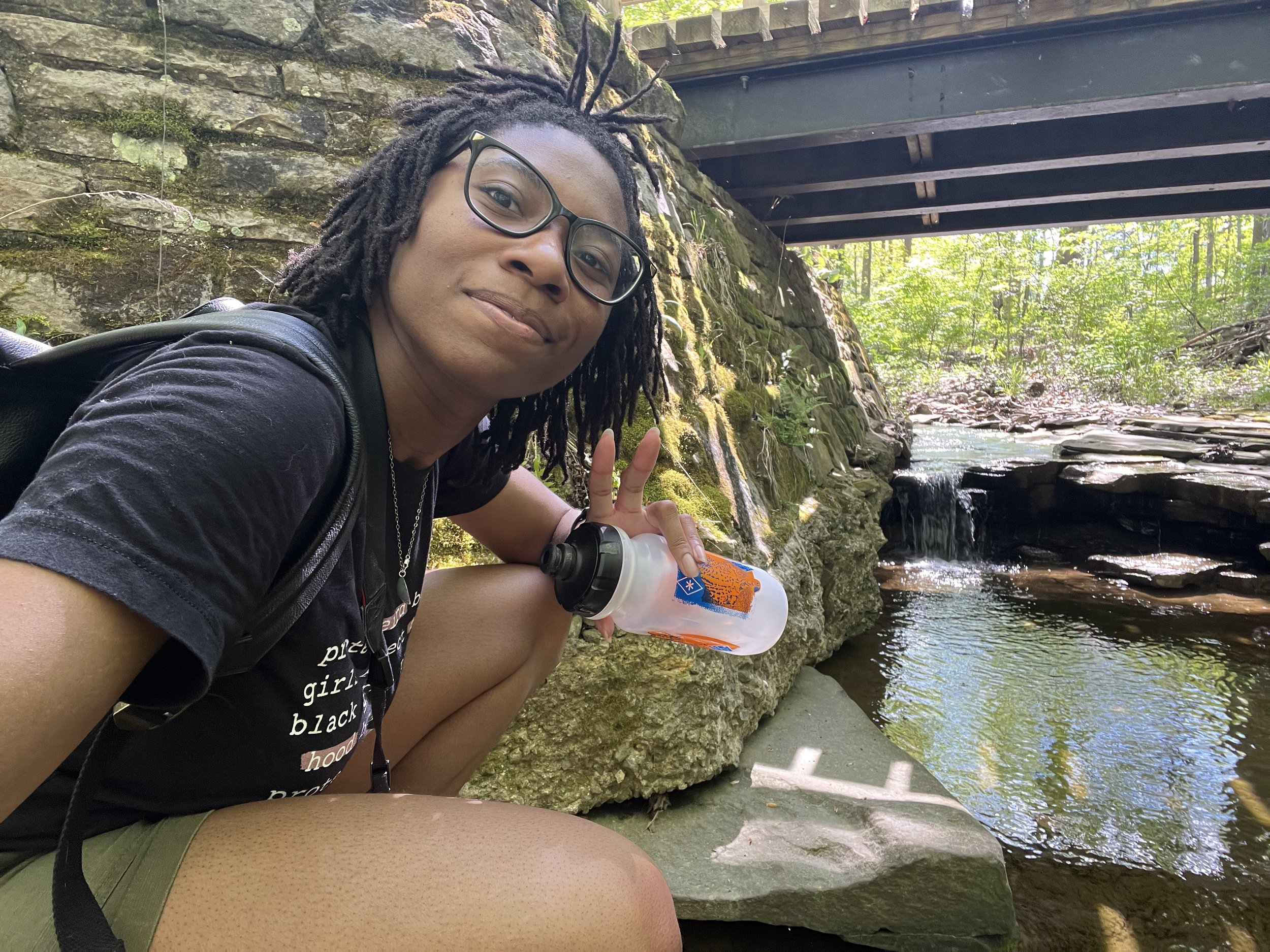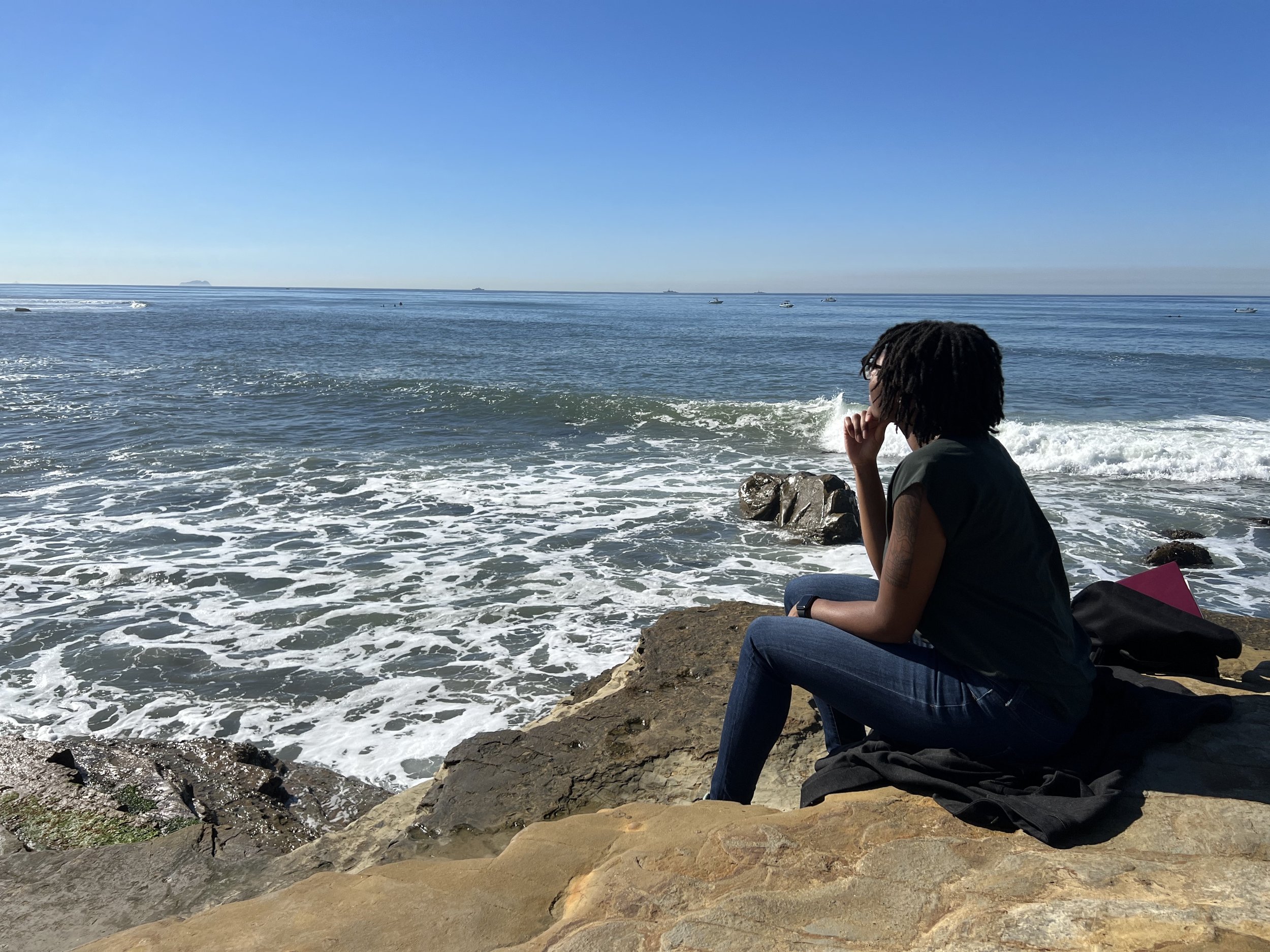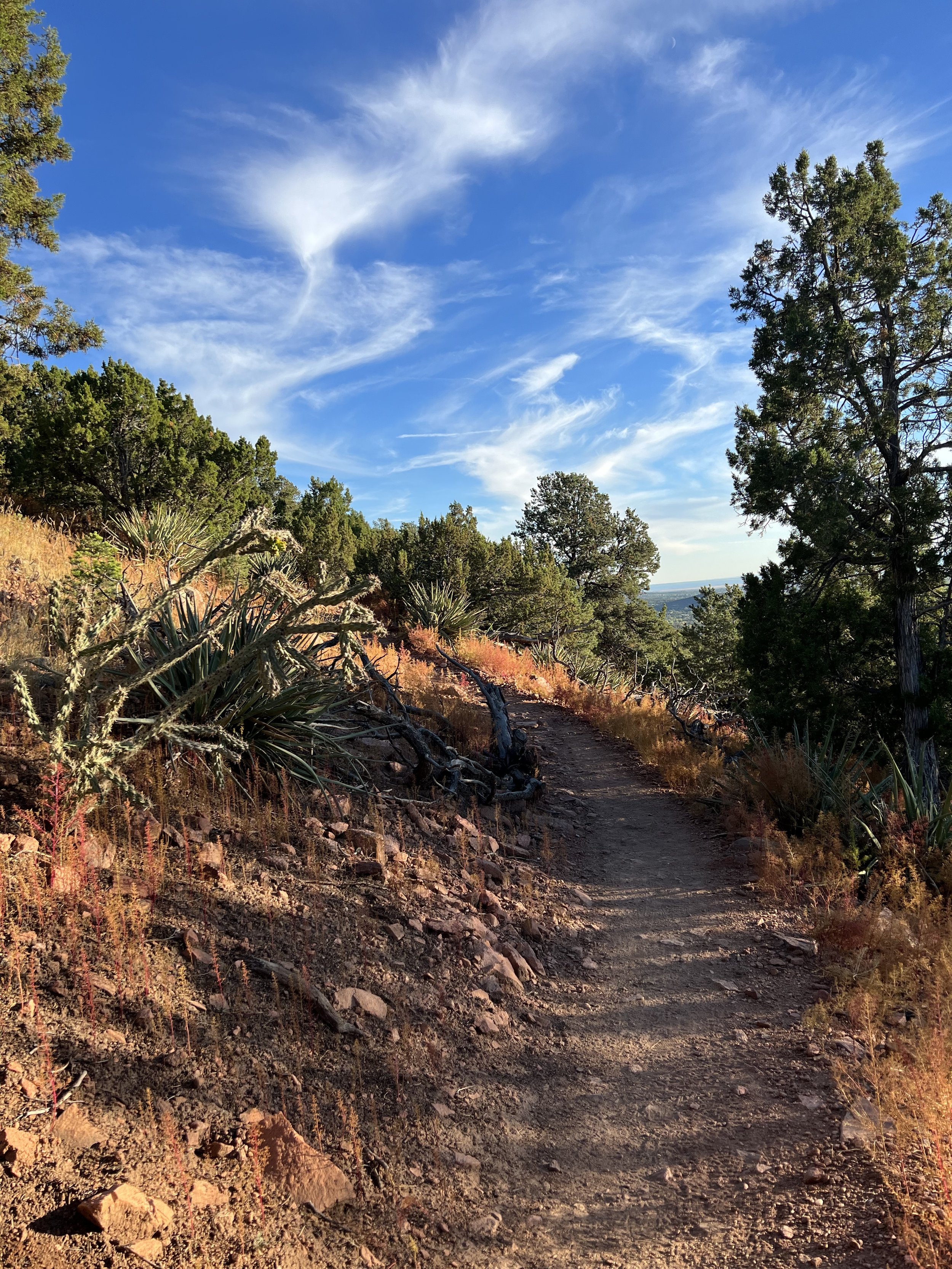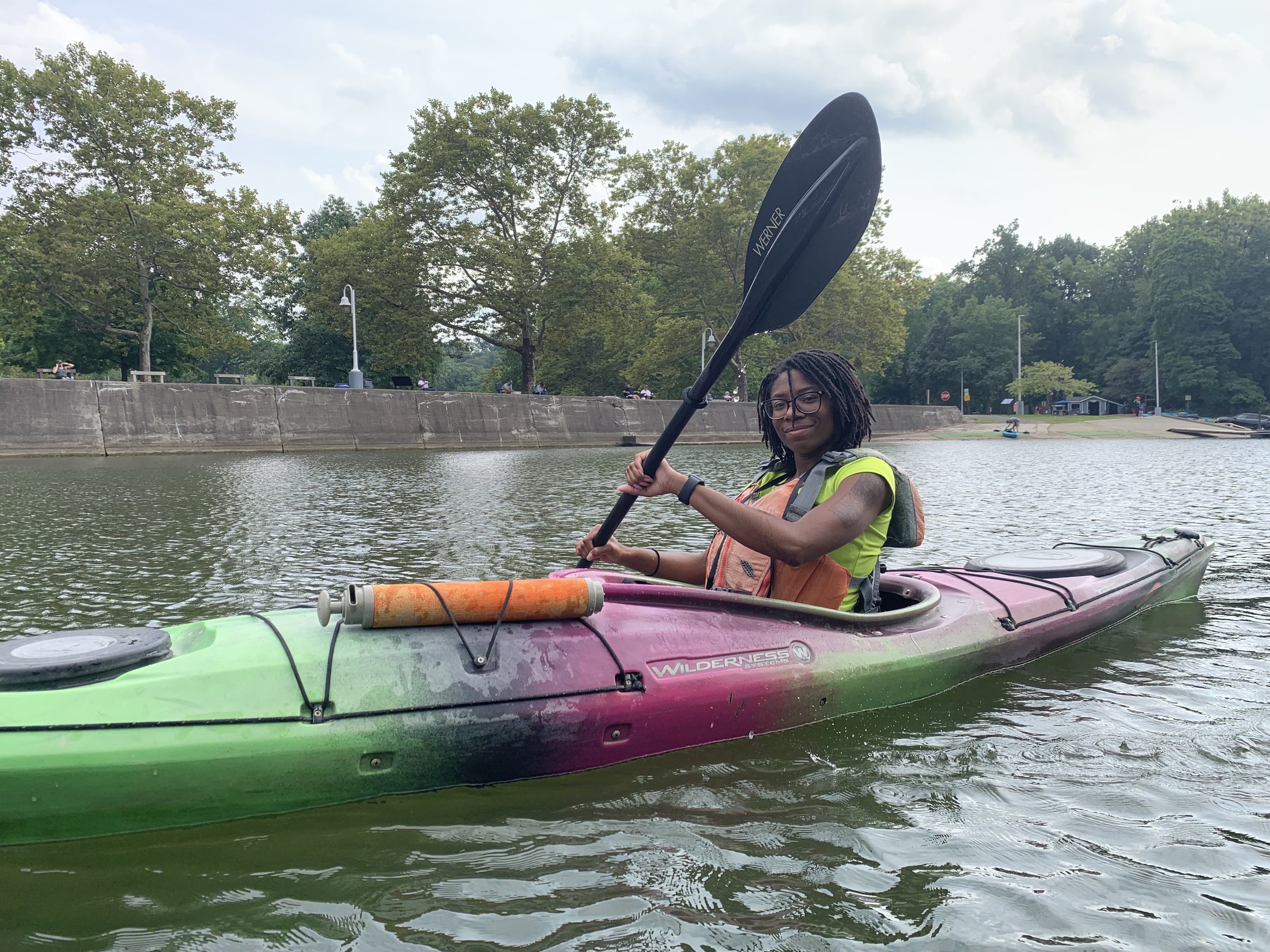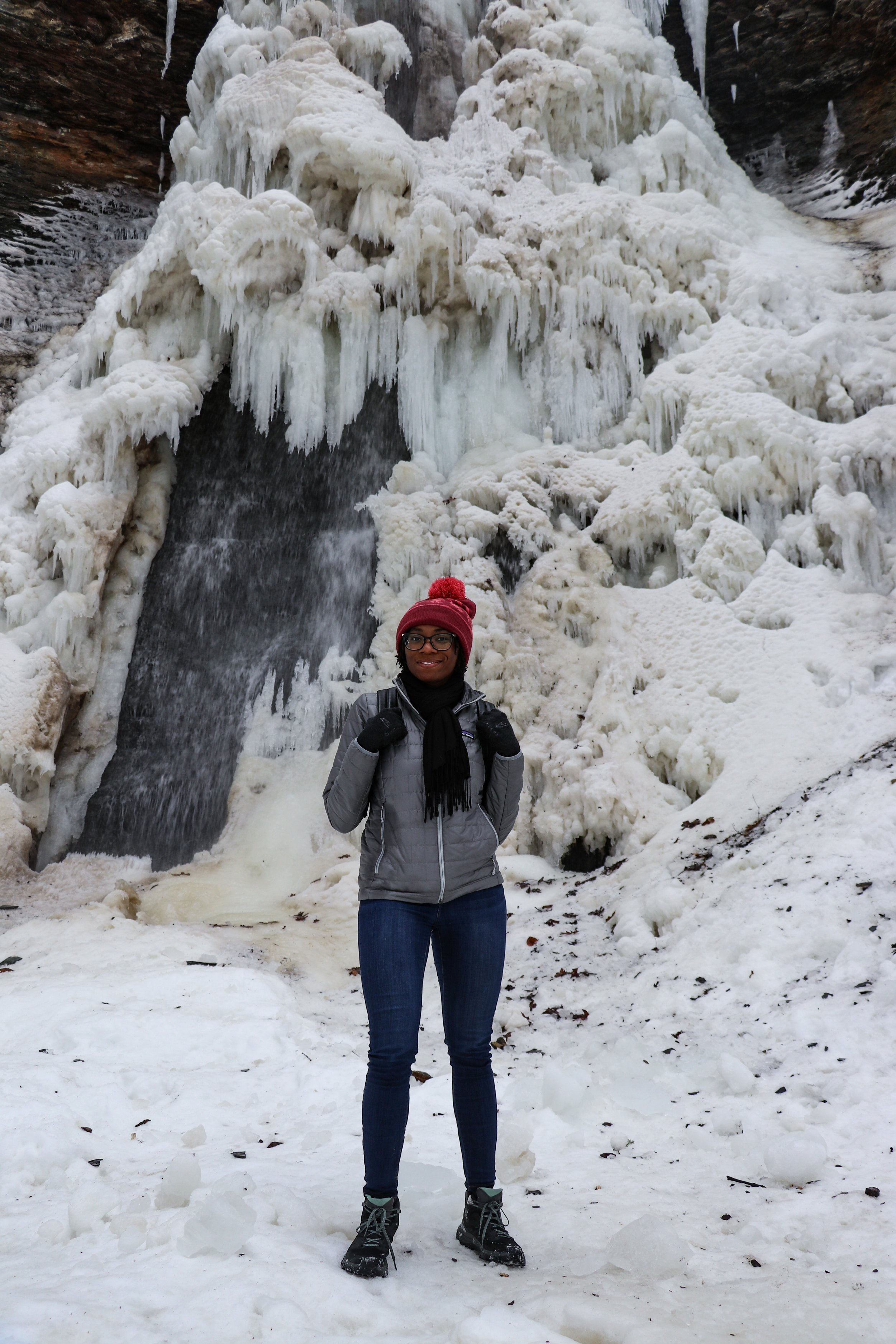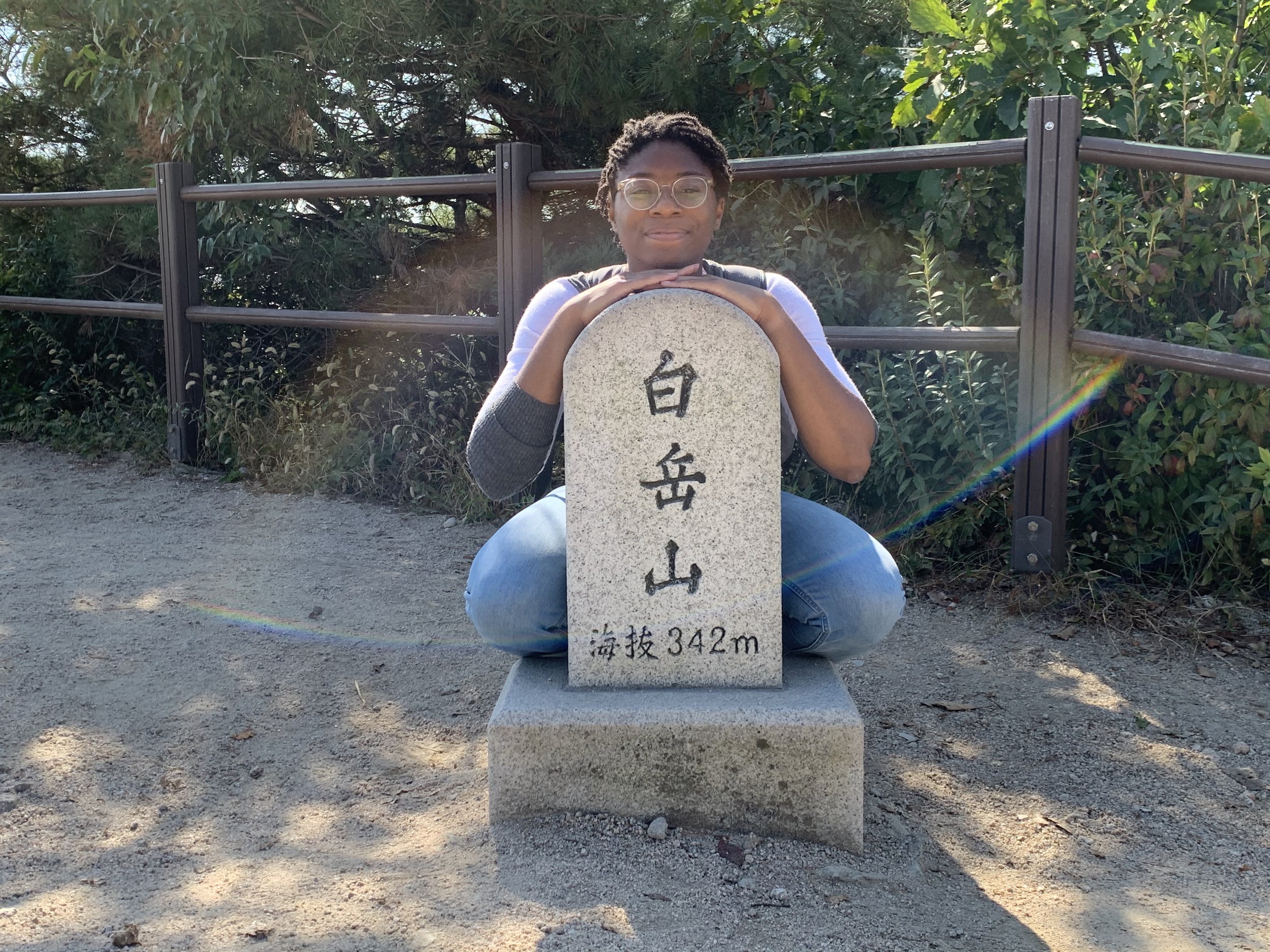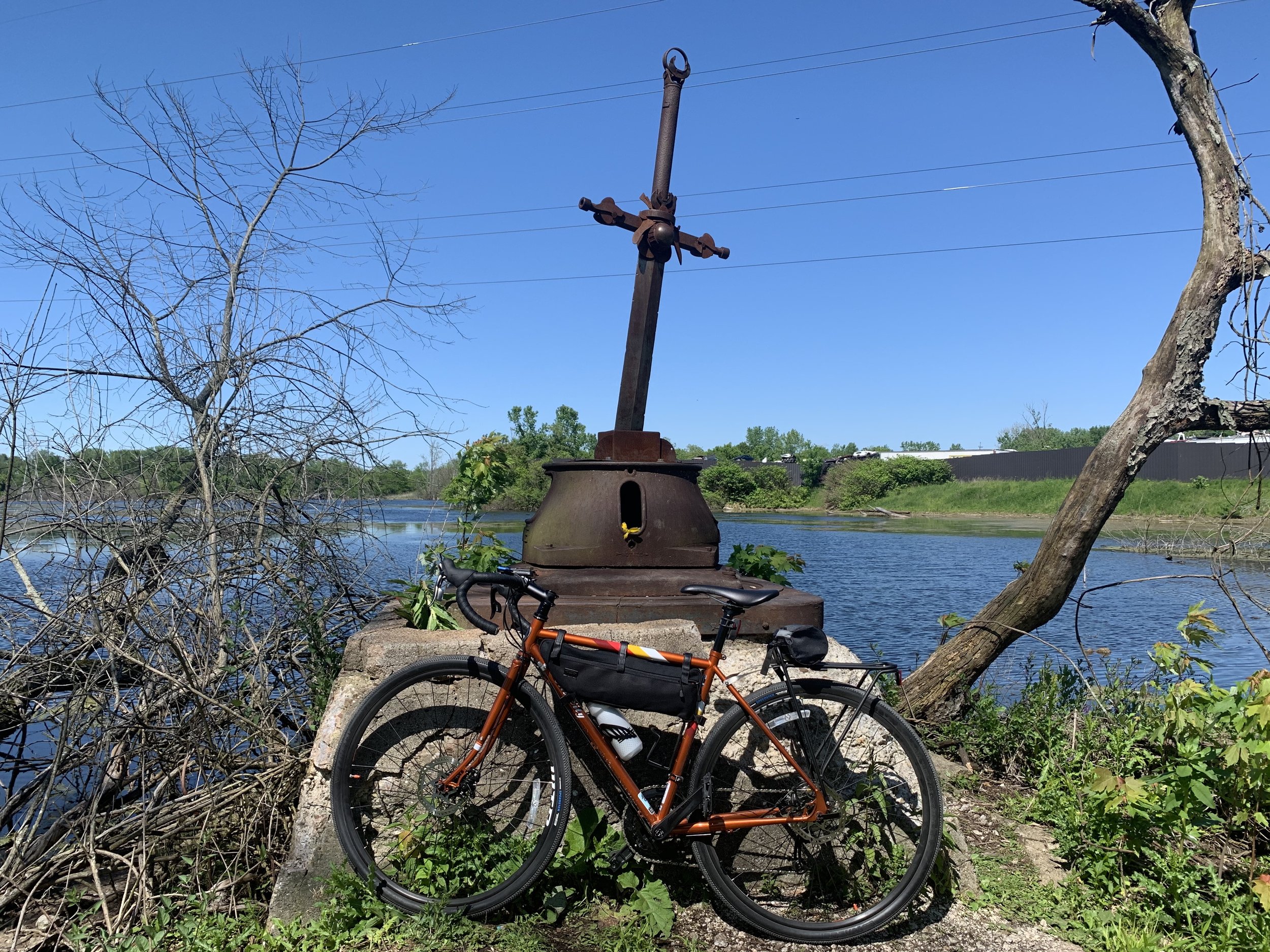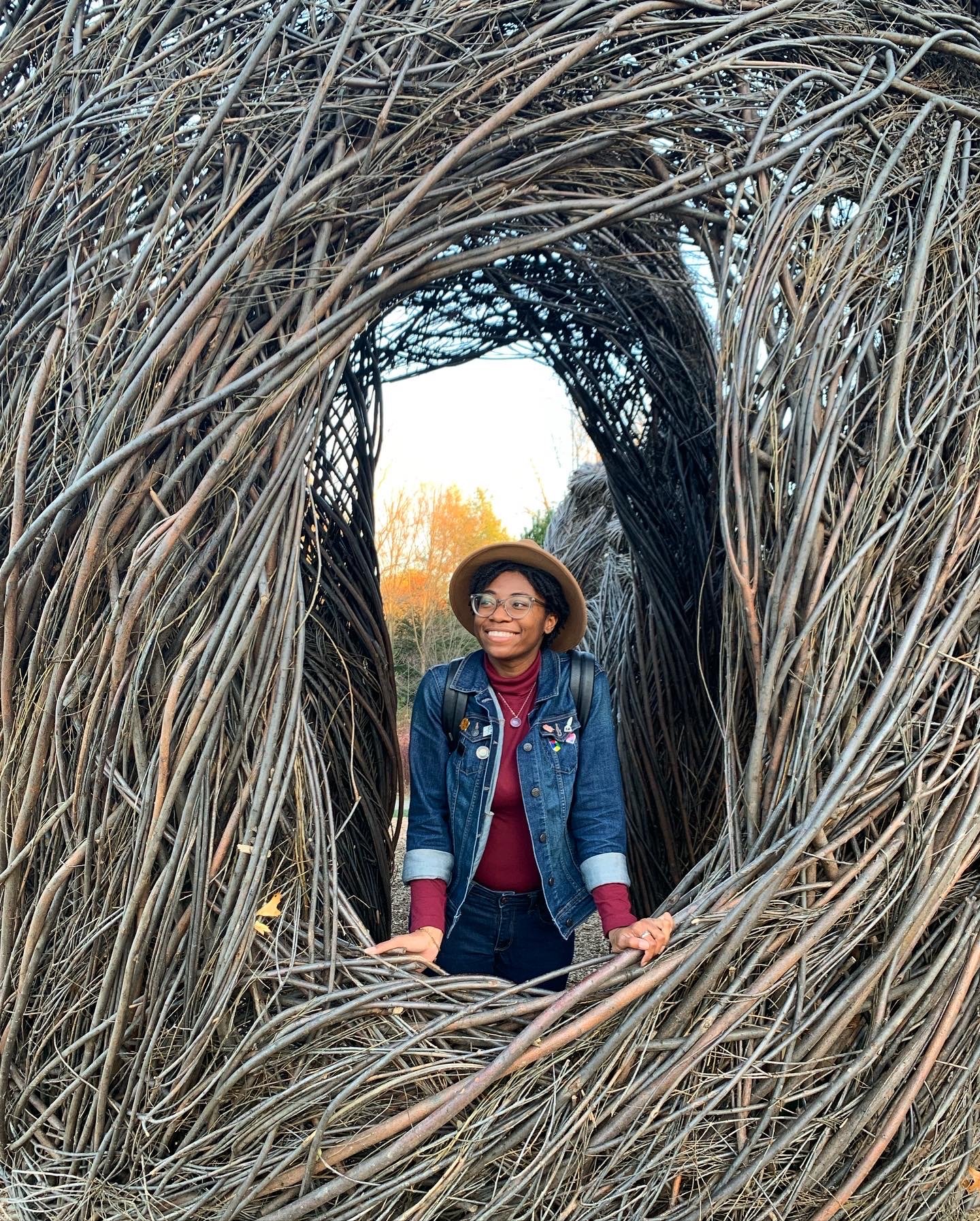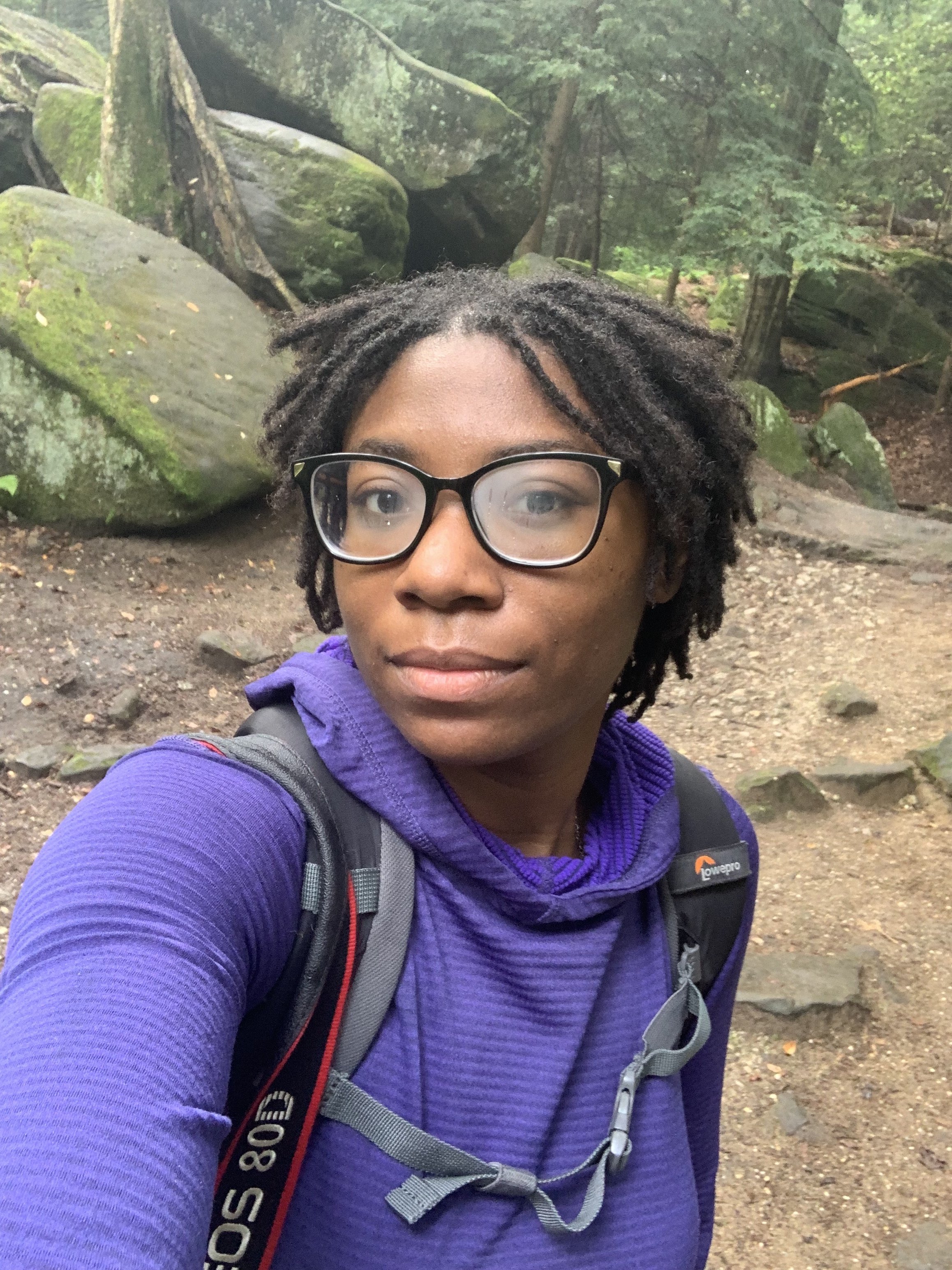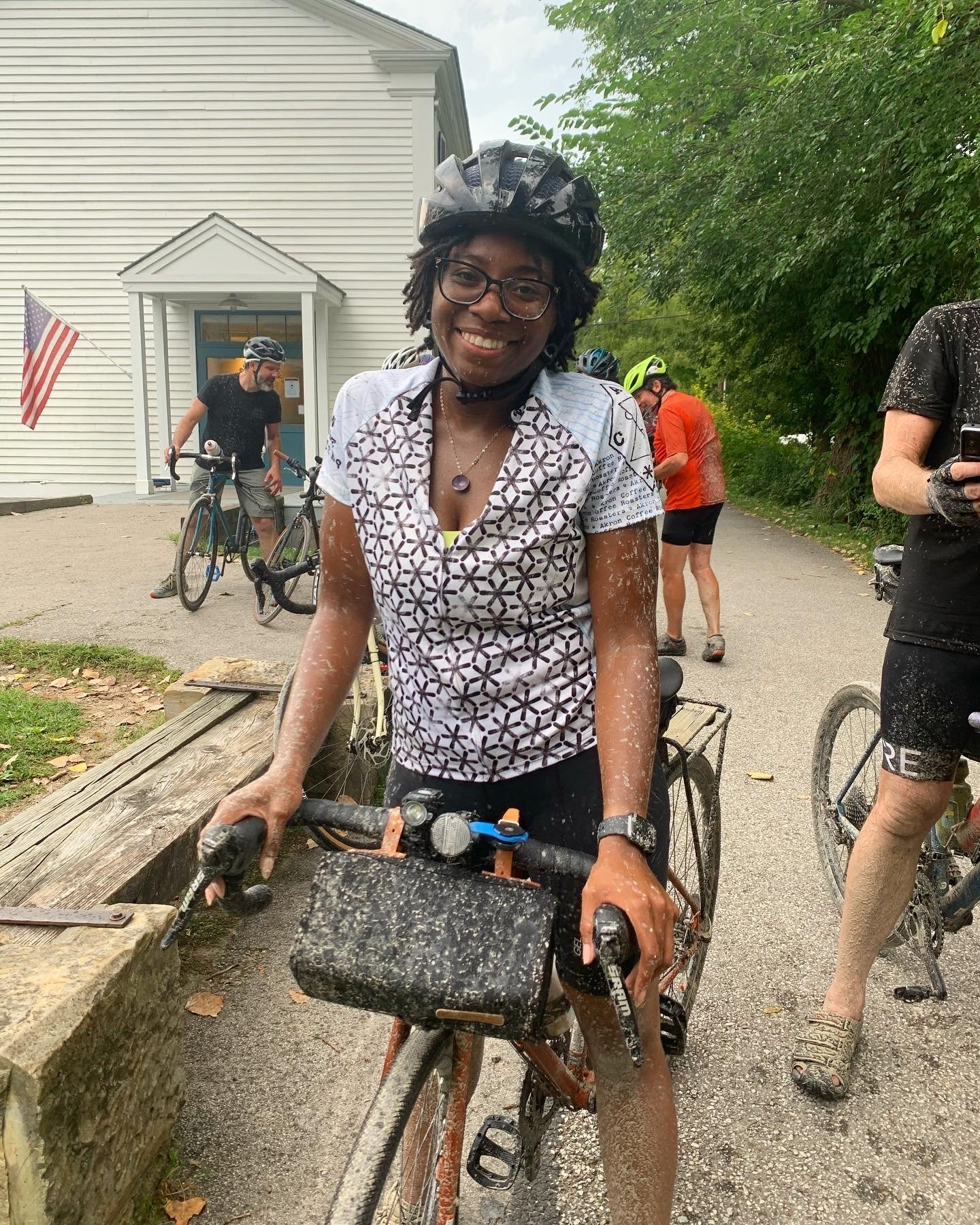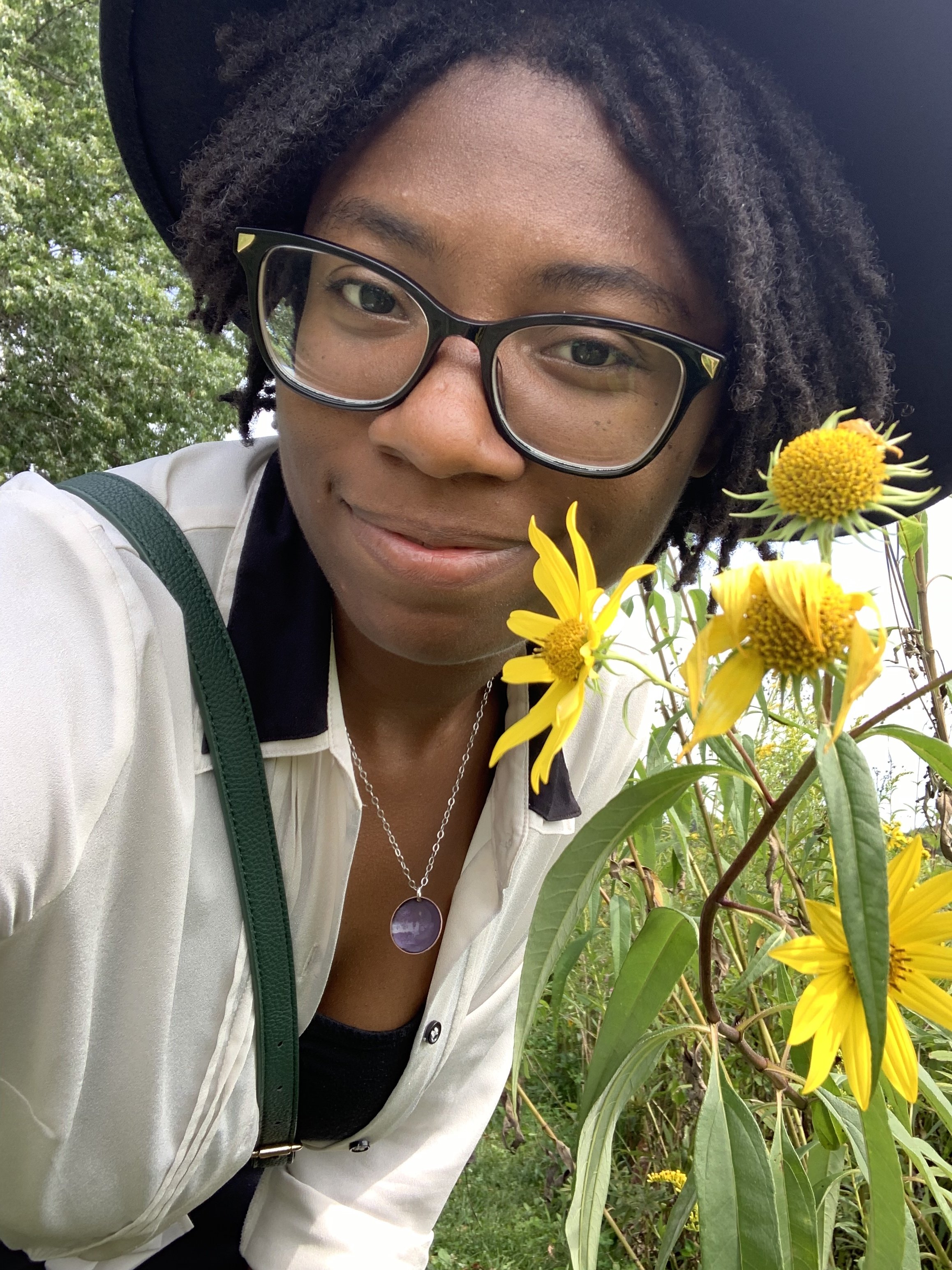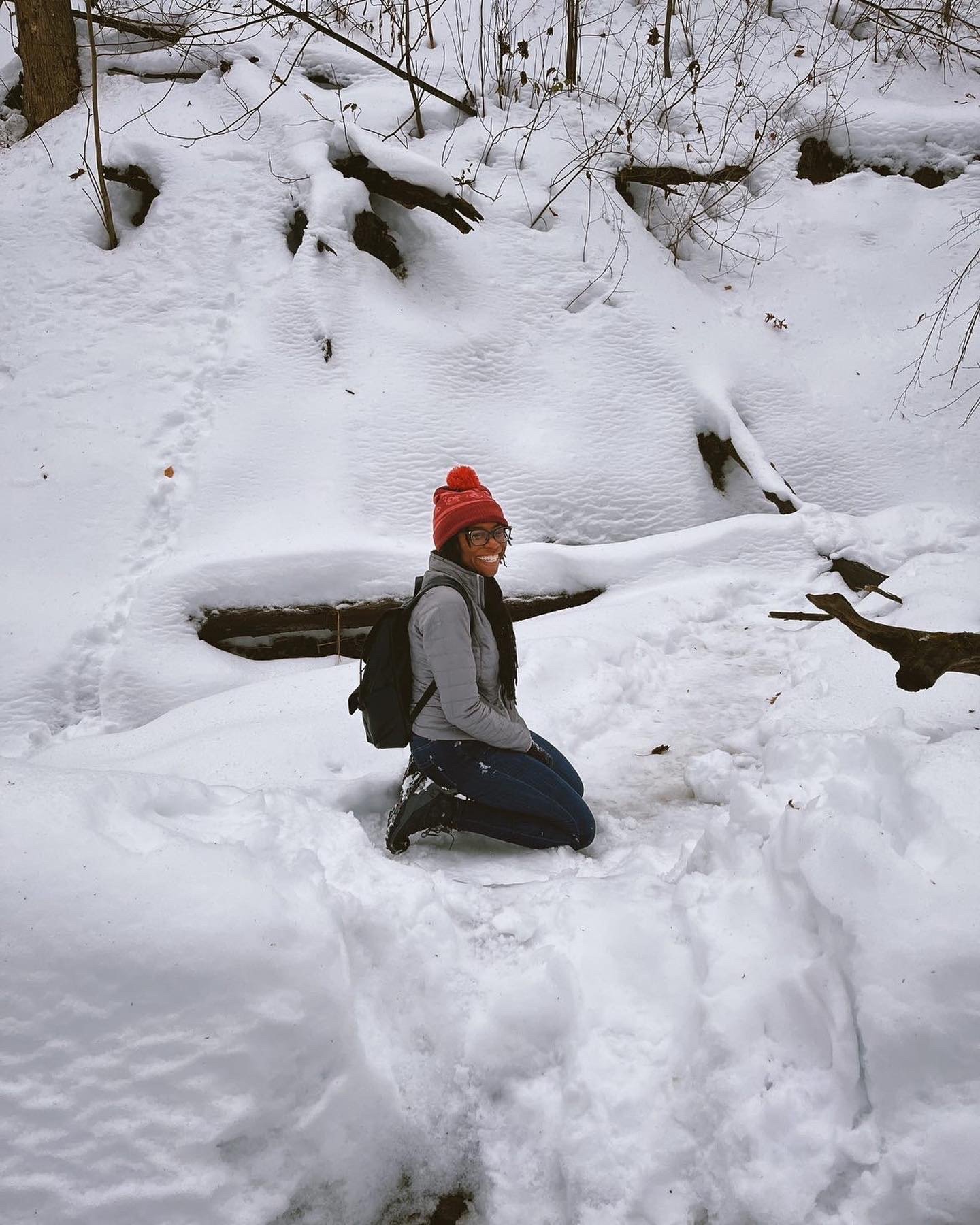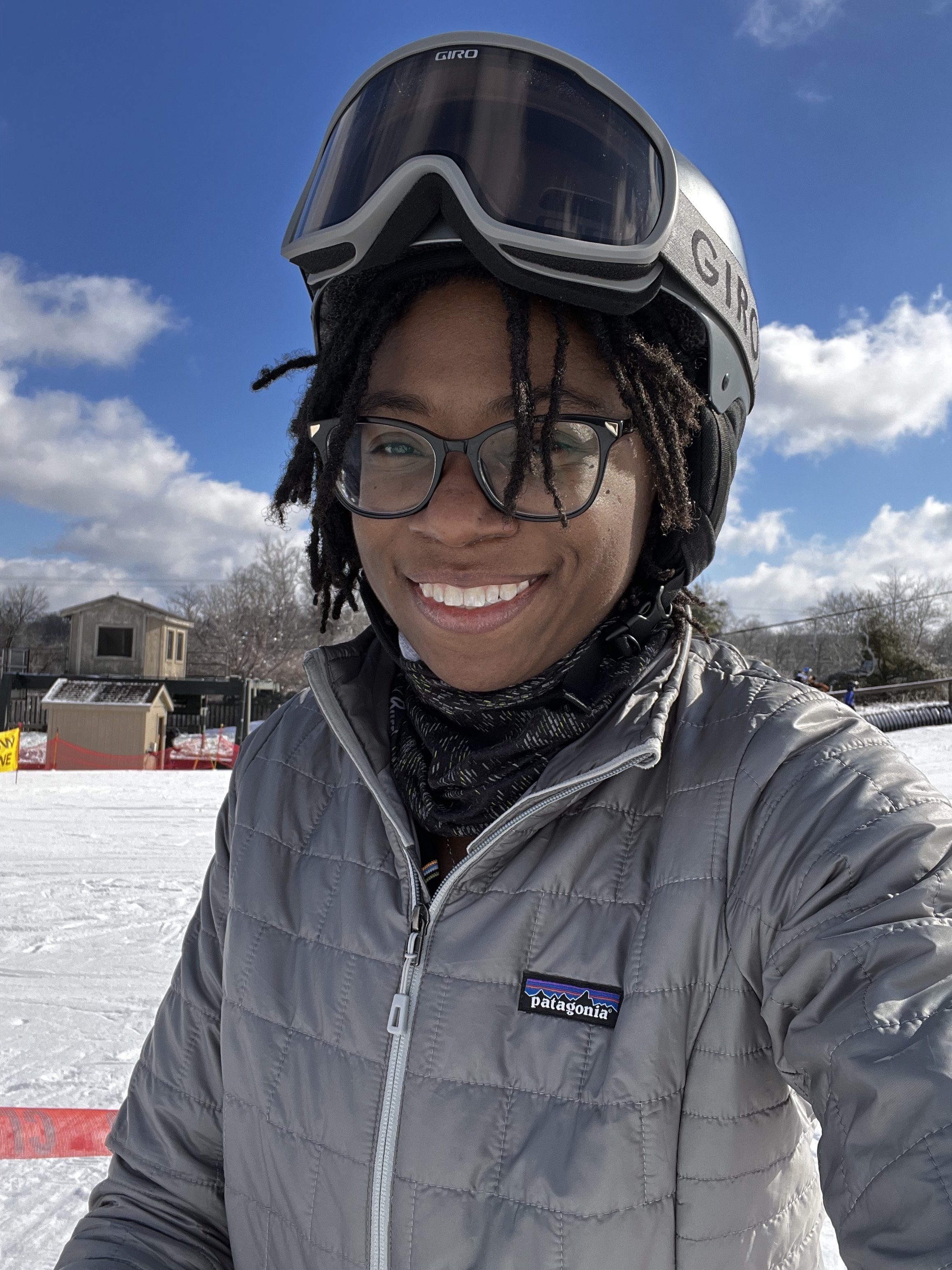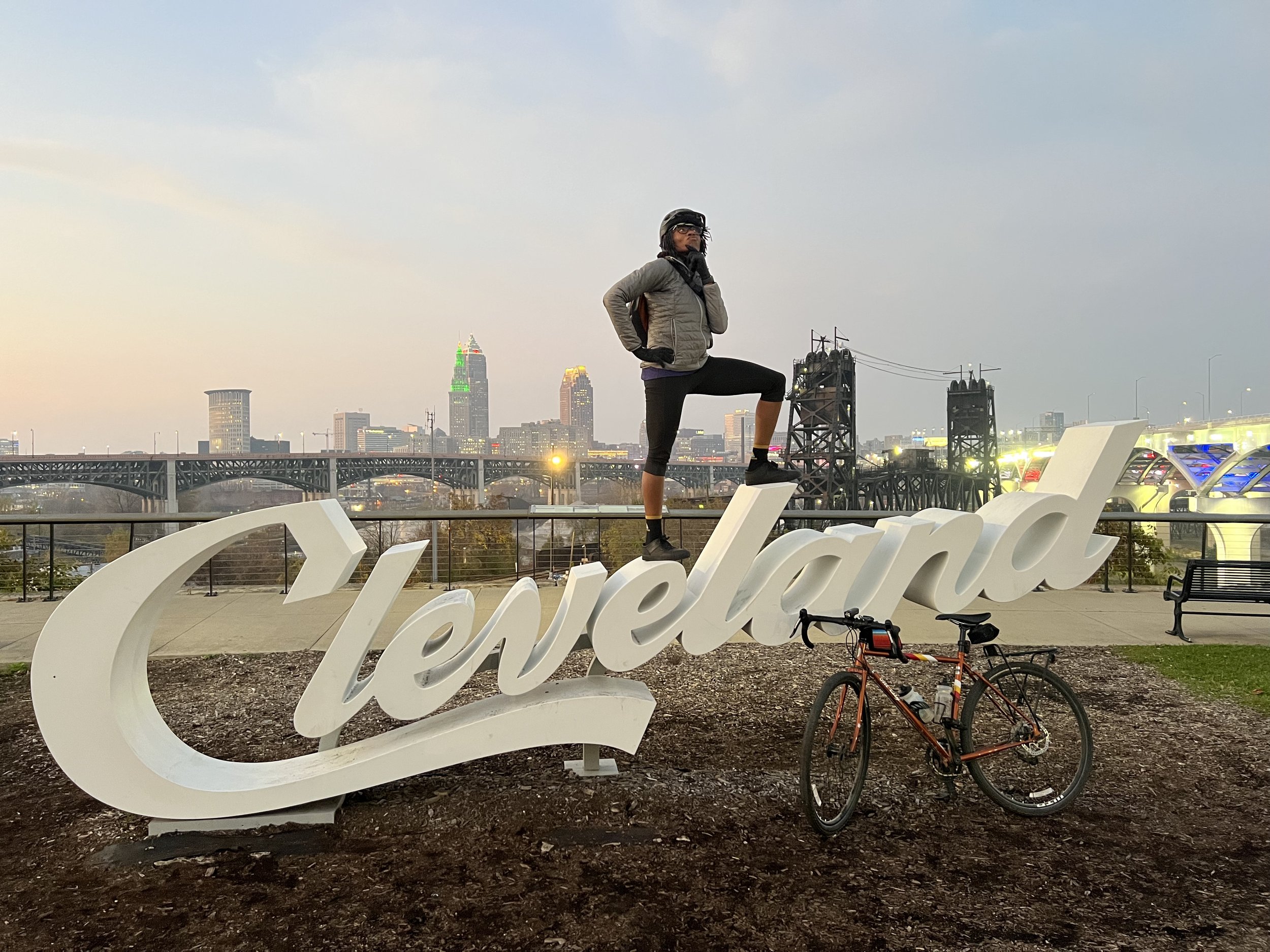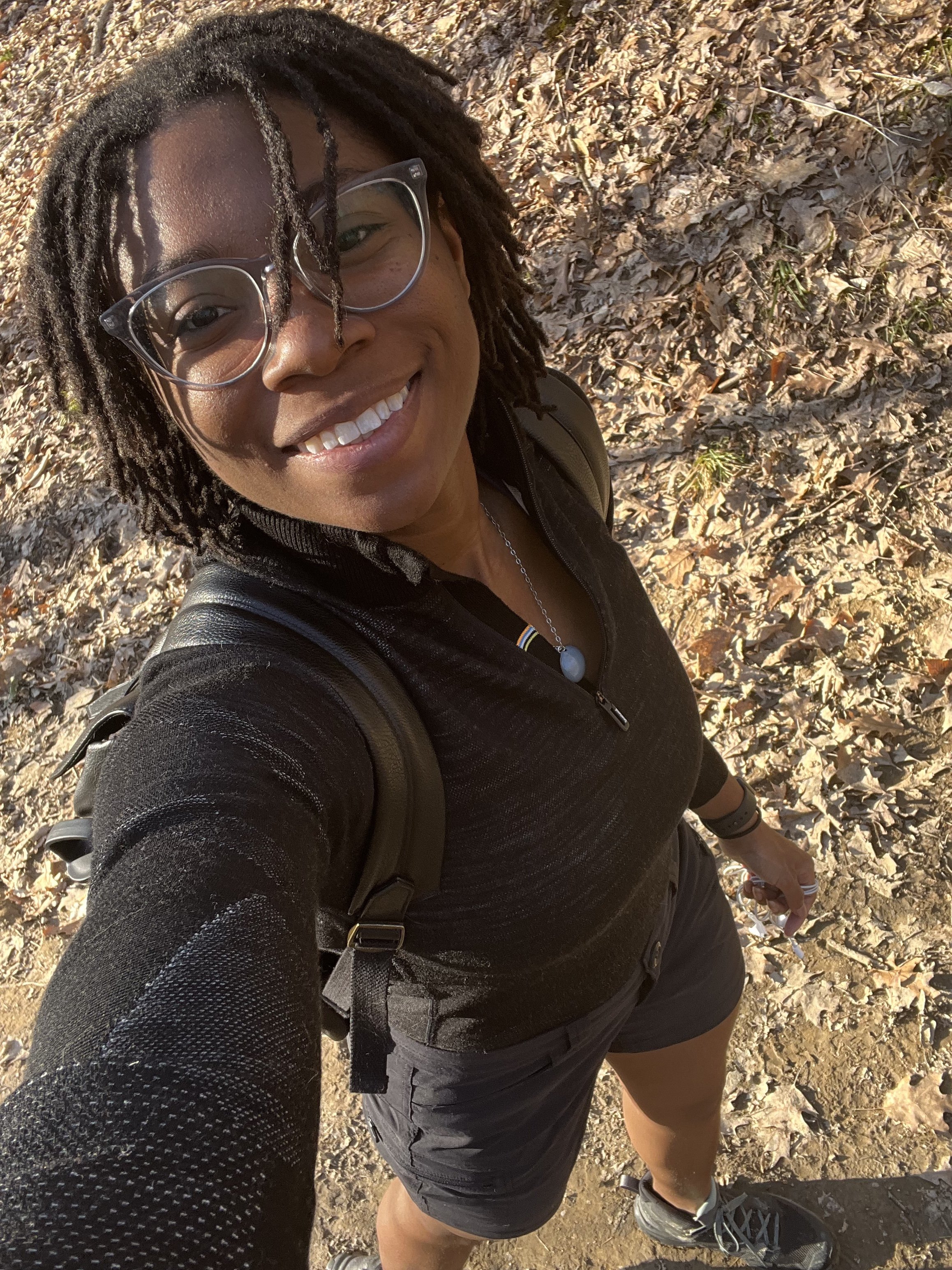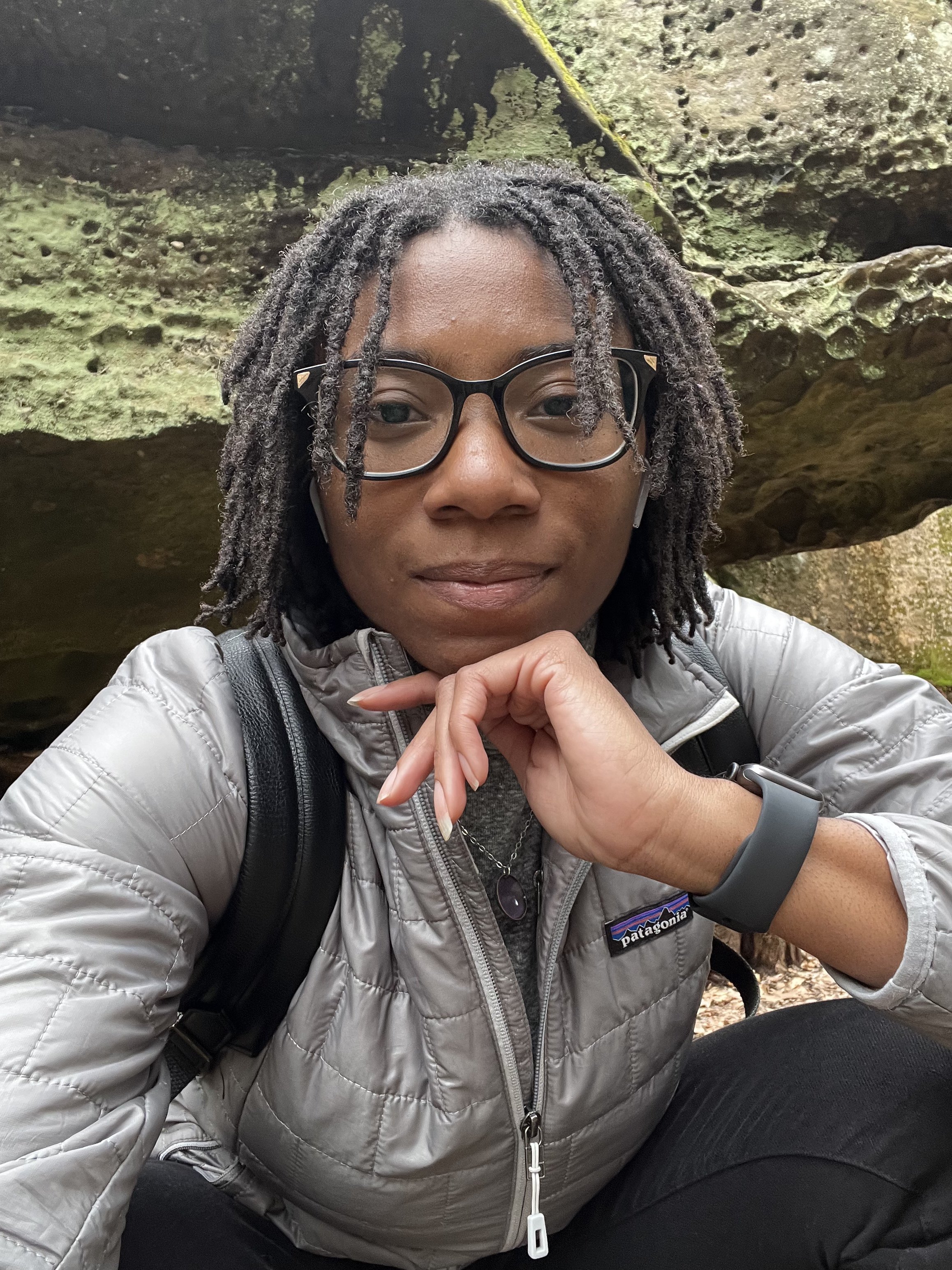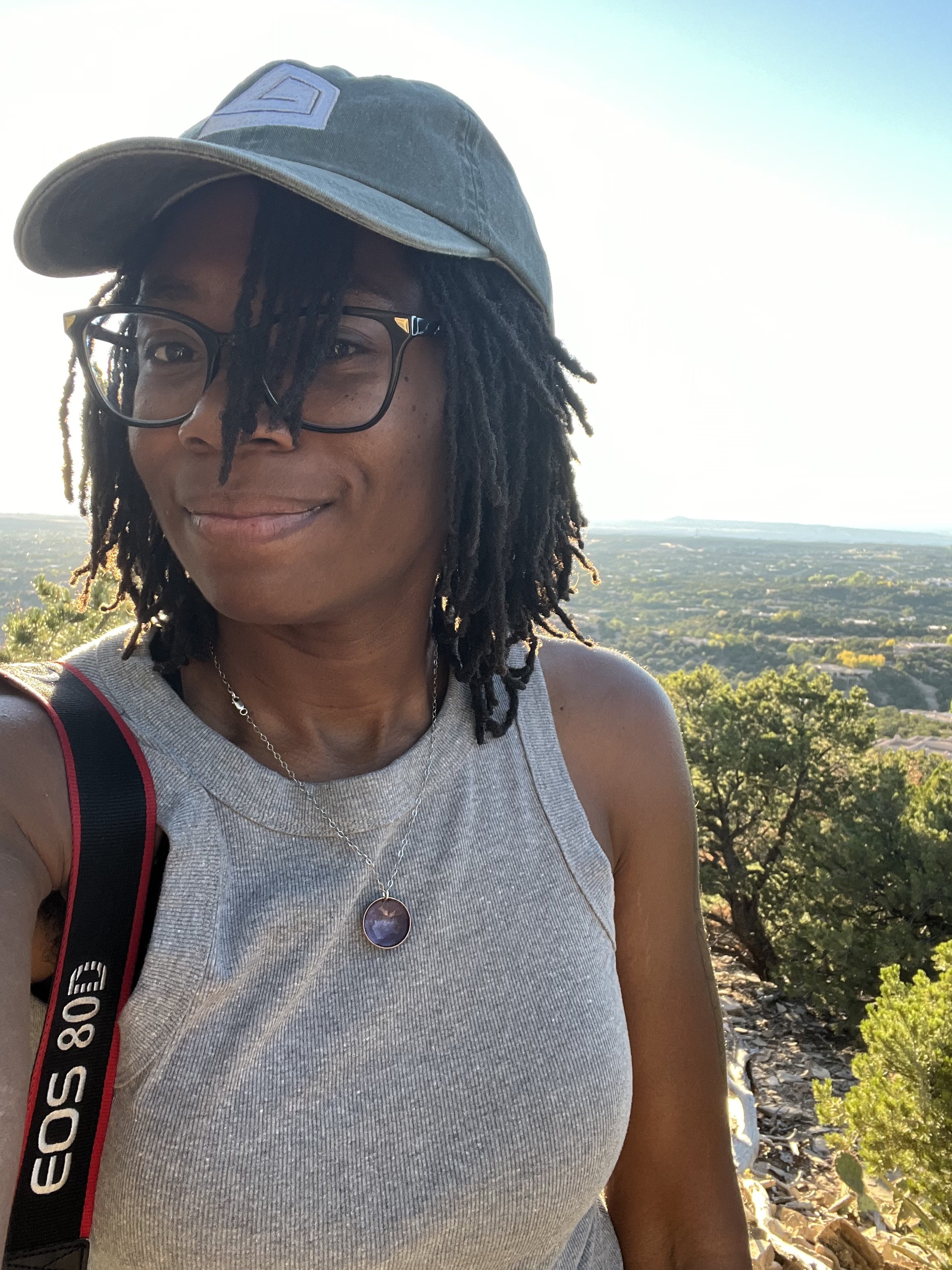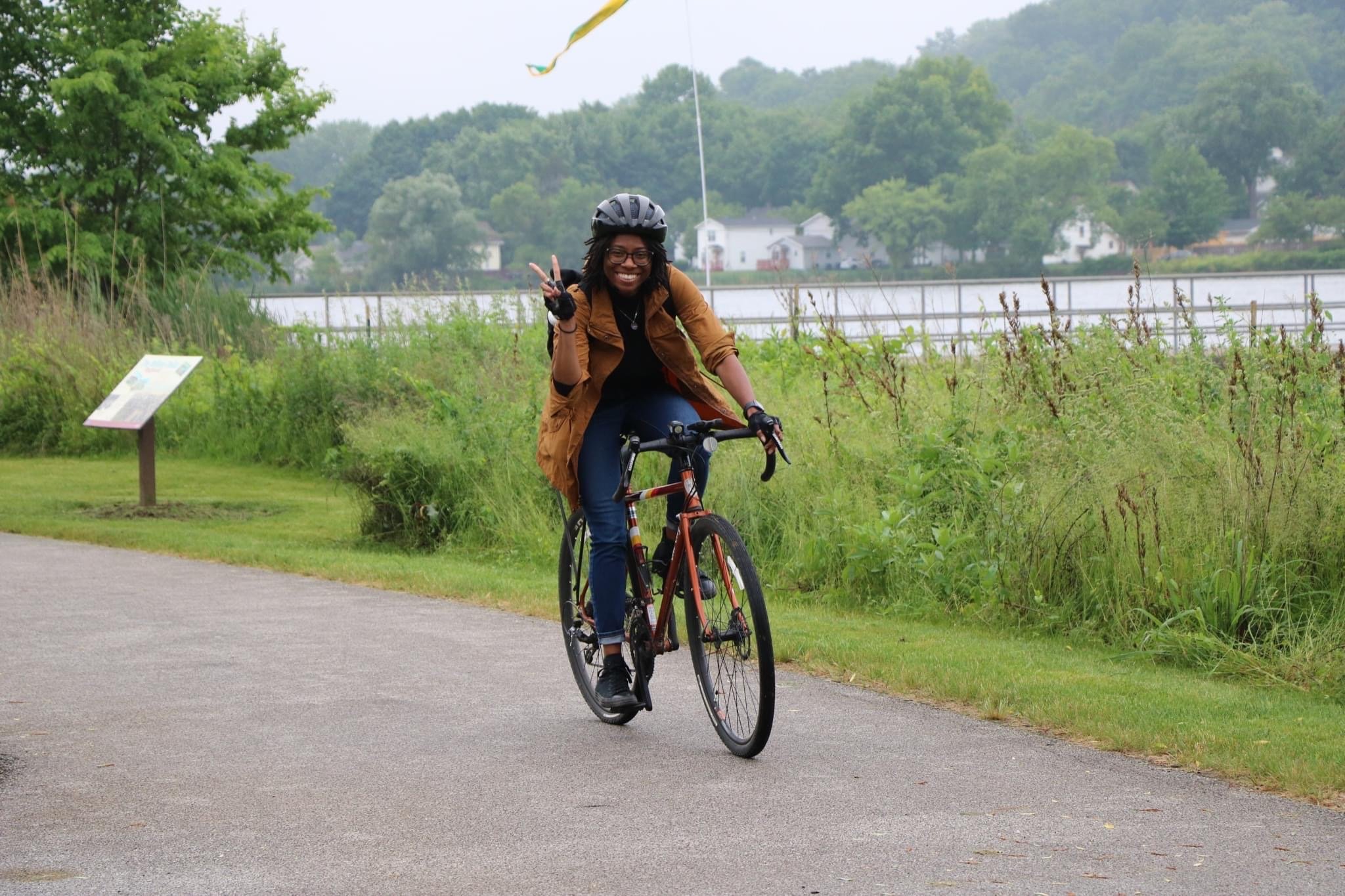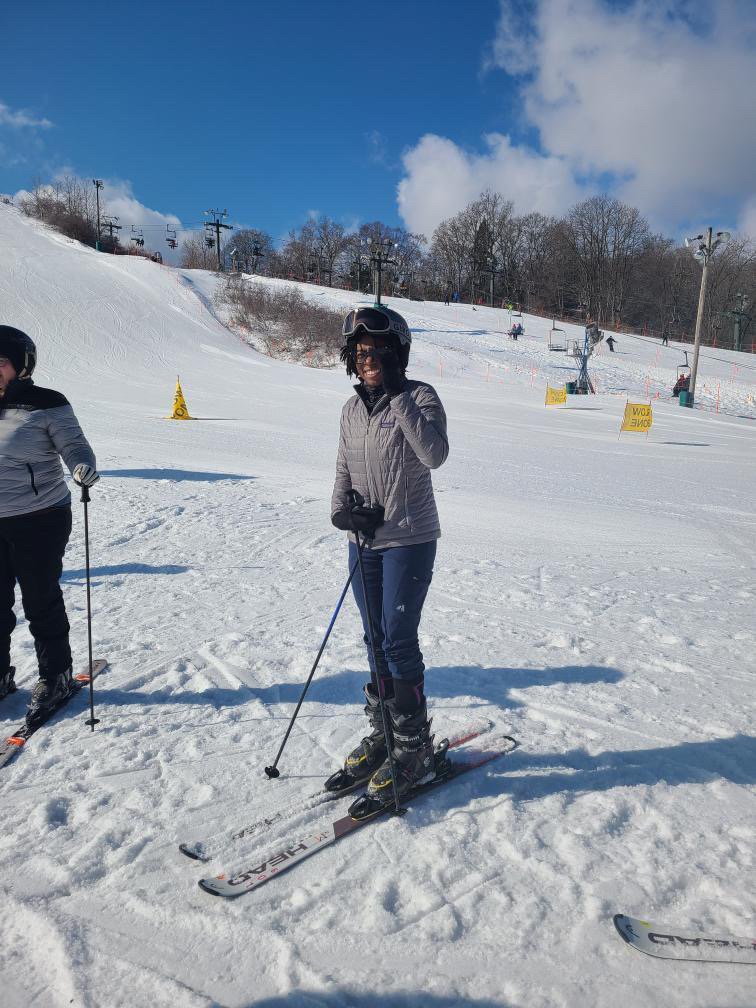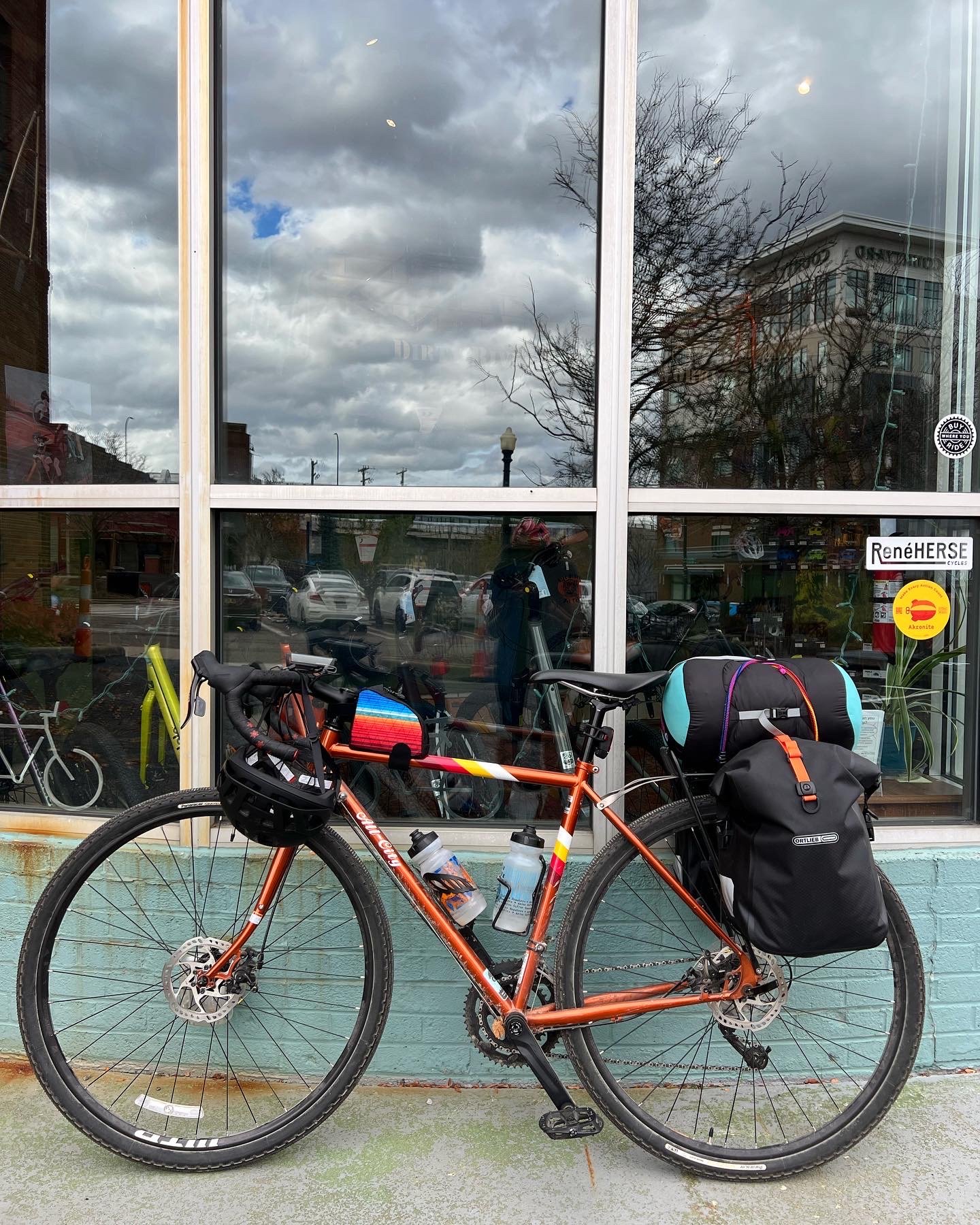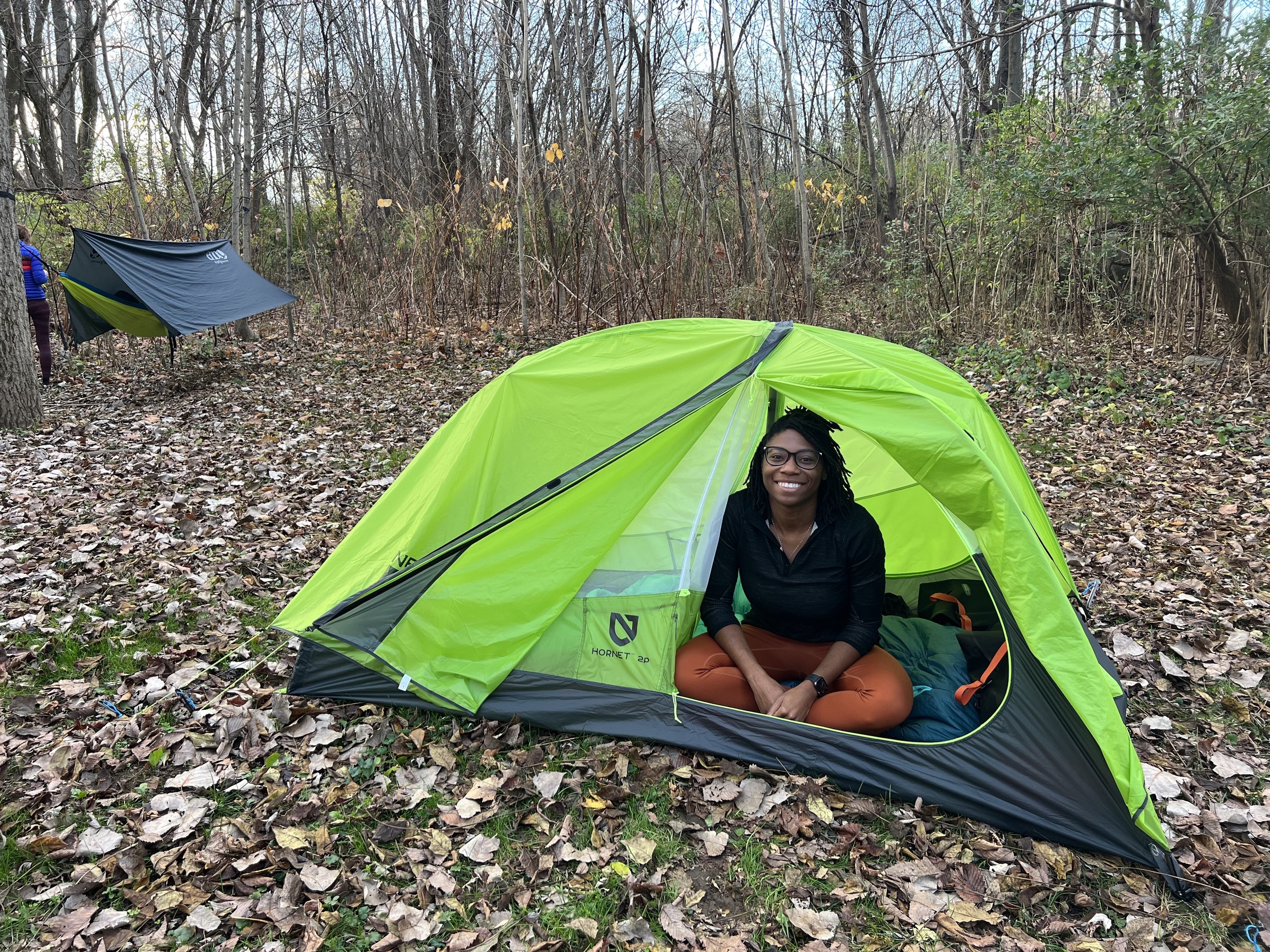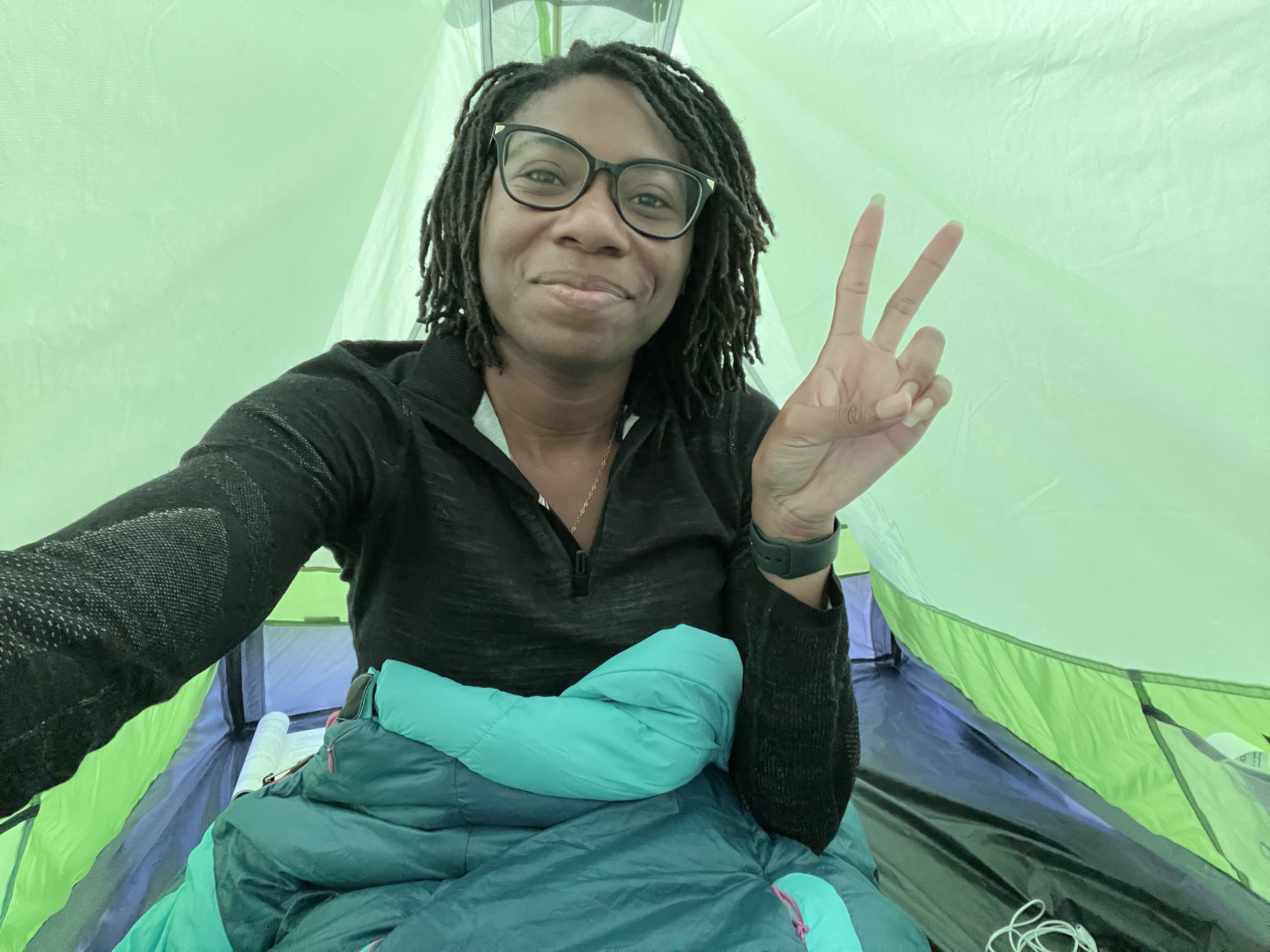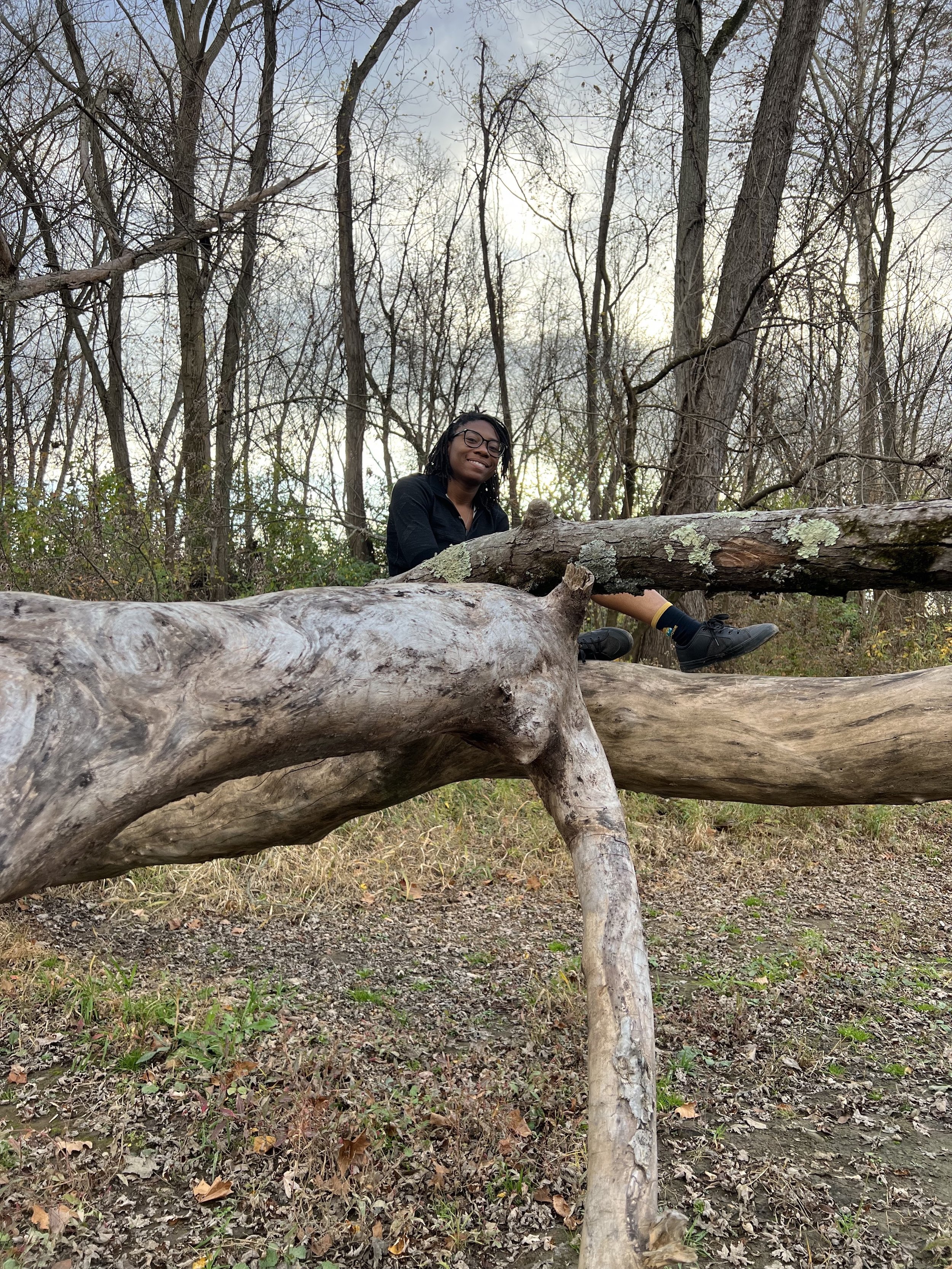On Being Black in Nature
”As you walk, look around, assess where you are, reflect on where you have been, and dream of where you are going. Every moment of the present contains the seeds of opportunity for change. Your life is an adventure. Live it fully.”
- Dr. John Francis
I stood on what felt like the edge of the world. Deep green cascaded into blue and my breath caught in my throat. It was late spring and so everything was buzzing with life. Bar Harbor, Maine sat below me like a little pockmark of an abnormality against what was true and pure. But for a moment, I could hear nothing but the gentle breeze making its way across the slightly rugged landscape. Stillness. Peace. This moment will forever be embedded in my mind.
By this point, I had spent nearly a week of traveling across New England with my then partner and I desperately needed to stretch my legs. We drove to the top of Cadillac Mt. and started the descent on foot. I remember being nervous as hell. Heights have never been my favorite, but I’ve spent years pushing myself to my edge and battling my fears one by one. The photo above captures that moment. It left me with a sense of anything being possible as long as I believed enough.
In 2020, the National Geographic released a thought provoking article on how nature deprived neighborhoods impacts the health of people of color as part of their Race in America series. The article highlighted information from a report from the Conservation Science Partners and the Center for American Progress about this nature gap. In the report, researchers found that people of color are three times more likely to live in a nature deprived environment and nature destruction impacts low-income people of color the most. I was not surprised.
Personally, I didn’t grow up in a family that frequented parks and greenspaces. I was a city kid who spent her days riding her bike around her grandparents’ neighborhood or played in a small, concrete-laden city park. Beyond the occasional family reunion, church picnic, or visits to family in Alabama or Mississippi, I didn’t have the opportunity to see robust parks or spend much time on big swaths of land in its natural form. If my memory serves me right, it wasn’t until I had graduated high school that I visited my first metro park on my own. I remember my first few hiking explorations. I had no idea what I was doing and I would wander about trying to make sure I didn’t lose track of the signs. That said, I’ve always been a bit of a water baby. Rain was a balm to my soul, so the moment I stumbled upon the various lakes, ponds, and rivers, I knew that I was home. In a body riddled with anxiety and a deep struggle with her own darkness, I suddenly felt at peace. It launched an ever growing love of the outdoors.
Research clearly shows that being exposed to nature makes people happier, healthier, etc. In fact, there are a number of reports that show that short walks in green environments can reduce stress, stave off depression, and lower your heart rate. Being outdoors also helps better connect us with the natural world and by extension the broader community. Personally, I credit hiking and biking as two of the things that have saved my life time and time again. About five years ago, I had some major mental health struggles and getting outdoors combined with therapy helped me heal in a way that little else could. Now, through every challenge, heartbreak, stressor, I turn to the outdoors to teach me and help me along this journey called life.
Despite all of this, I’m also inextricably aware of the history and danger that being in the great outdoors poses for people who look like me. Especially when you factor in the additional dangers that my perceived gender faces. The tragic death of Eugene Williams in 1919, a 17-year-old who was stoned by white beachgoers because him and his friends accidentally drifted over to the “white section” of Lake Michigan, is often cited as an example of the dangers that Black people face by white hands in the outdoors. But that was nothing new even then. Public lands in the United States are steeped in violence and blood from the displacement of our indigenous community and forced labor of Black folks. The U.S. has systematically segregated Black and Brown folks from public lands by outright exclusion, financial barriers caused by broad economic suppression, unwelcoming facilities, advertising geared solely towards white folks, lynching of Black folks in wooded areas that made unknown places to be feared, among others. In 2020, approximately about 22-23% of people of color utilized our national park systems and only 5-7% of those were Black folks. In terms of employment, Black people only account for 6.7% of the National Park’s full-time staff although we make up 13.4% of the population. Clearly it’s a very rare occurrence to see Black folks in the industry.
Over the years, there have been pushes to really change the perception that outdoor recreation is only for white folks and create space for more people to feel included. I’ve seen major strides during the pandemic with new organizations cropping up and efforts by established corporations to move the needle. Many have partnered with groups targeting Black, Brown, and other historically marginalized groups to create more inclusive experiences. A really cool opportunity that I became aware of earlier this year is Black People Who Hike’s national park tour. They received funding from the National Park’s Park Ventures program to bring Black folks to several national parks across the U.S. I’ve been following the experiences and they have filled my heart with such joy and love. I’m looking forward to joining next year.
But, there needs to be more than just partnering with groups. Organizations need to change their hiring practices and internal cultures to attract more people of color. They need to redesign their policies and procedures to root out embedded racist practices. They need to rethink how they engage folks that is more inclusive and be innovative in their programming. They can’t just continue to lean on those who are marginalized to do the work. We have to dismantle this issue together.
Locally, me and one of my best friends (Kim) created Black Women Explore, an outdoor recreation group that strives to create a brave space for Black and Brown women (and femme-identifying folks) to explore the great outdoors. We’ve been in existence for about a year and a half and our private Facebook group has well over 130 Black and Brown folks in our area. There’s always a moment when we’re together when someone’s face lights up and I remember why we do this even though it’s a challenge to organize consistently. This is a space that can be incredibly intimidating and may feel inaccessible for so many. But, we do our best to make it less scary. We use the rule of safety in numbers, never posting our time and location outside of the group, and never leave anyone behind. We’re in this together. Here’s an interview we did earlier this year with Reimagining the Civic Commons.
At the end of the day, I want to be a part of the solution. If I told my younger self that I would be kayaking on Biscayne Bay in Miami, hiking mountains in national parks, camping, or biking 60+ miles, she would be laughing her ass off right now. Not to say that she wouldn’t believe me, but she would absolutely be thinking “what are the chances?” I have had the privilege and opportunity to travel around the world (with still so much more left to see) and push myself to try out new forms of outdoor recreation. I want to keep encouraging others to be brave and so I will continue to share my life in this space. I have hope that we’re moving things in the right direction, but there’s still so much farther to go. We belong here too.
Additional Readings
Article - How ‘nature deprived’ neighborhoods impact the health of people of color
Report - The Nature Gap by the Conservation Science Partners and the Center for American Progress
Article - US Ranger on Mission to Attract More African Americans to National Parks
Article - Here’s How National Parks are Working to Fight Racism
Article - The lack of diversity in outdoor rec is systemic and disconcerting
Inclusive Outdoor Rec Orgs (not exhaustive)
Black Women Explore // Black People Who Hike // Outdoor Afro // SYATT // Black Women In Nature // DiversifyOutdoors // Green Recreation Organization // Brown Girl Outdoor World // Hunters of Color // Brown People Camping
Cycling: Black Girls Do Bike // The Black Foxes // Kings Rule Together // Queens Rule Together // All Bodies on Bikes // RAR
- Bron


